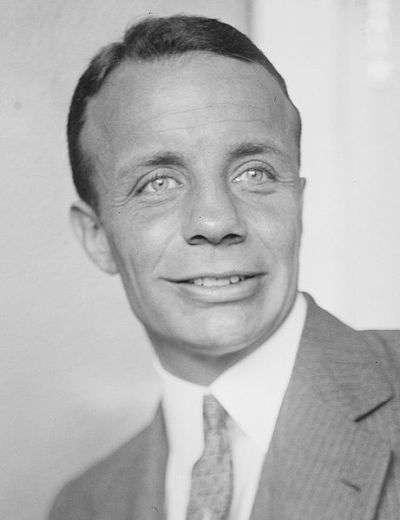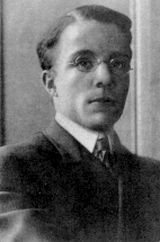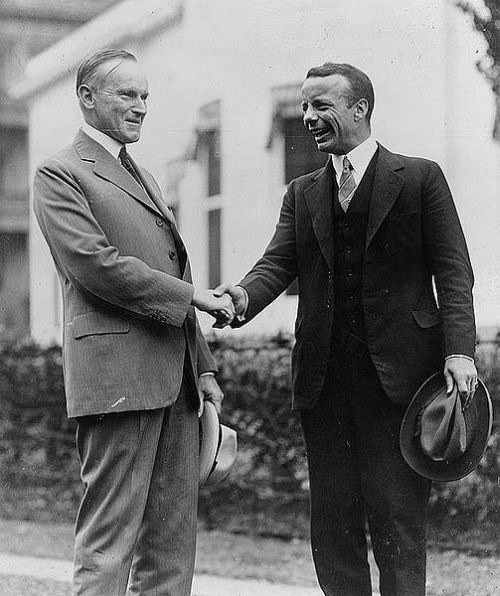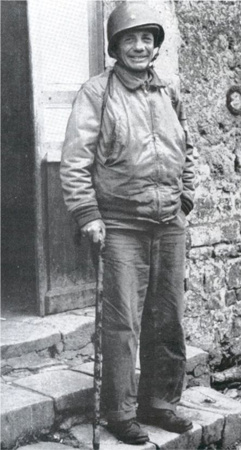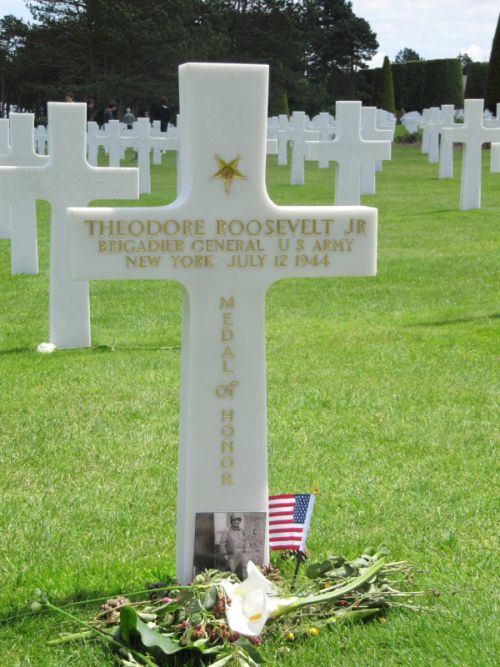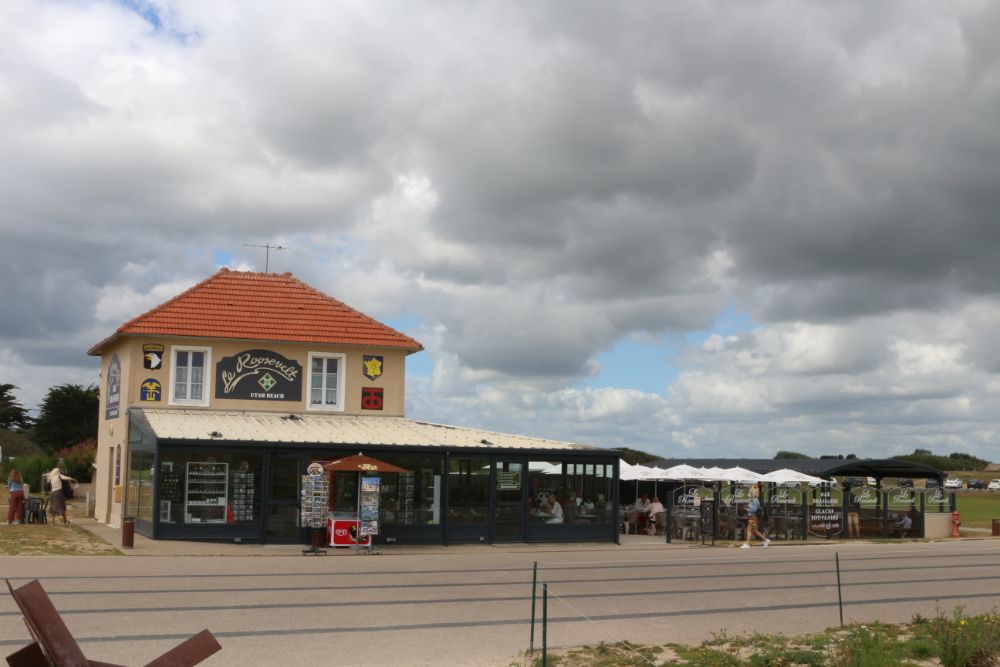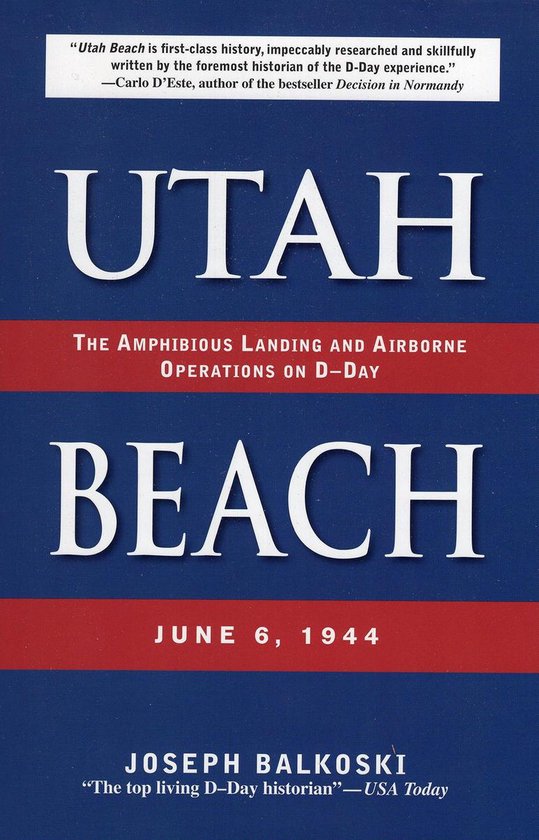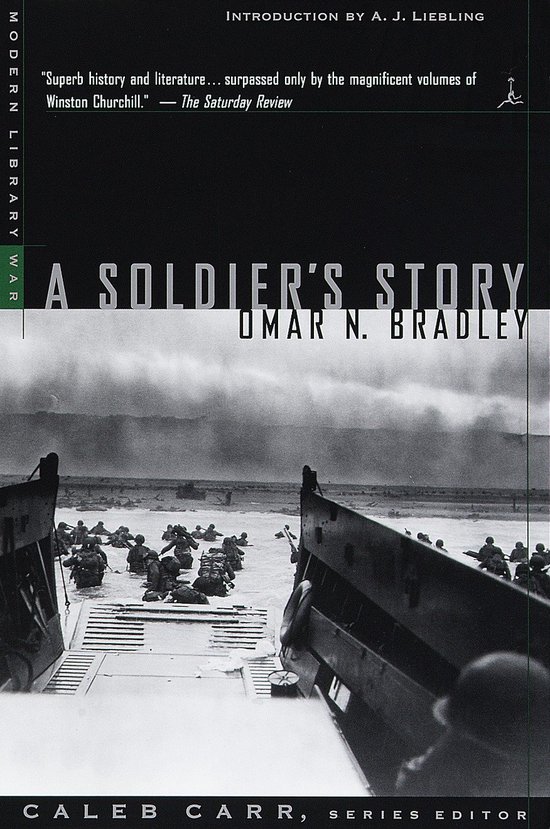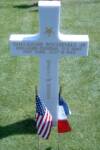Youth and early career
Theodore Roosevelt Jr was born November 13, 1887 in Oyster Bay, New York, as son of the later 26th president of the United States of America. He grew up in a family with two brothers and a sister and his mother Eleanor Alexander kept house. Before enrolling in Harvard University he was educated at Albany Academy and Groton school. He graduated in 1908 and went into business; he worked in the steel and carpet industry before he ended up in banking. He had a nose for business and gathered a considerable fortune in the years before the outbreak of World War One.
First World War
On July 28, 1914, the First World War erupted in Europe and almost immediately, the US took measures to prevent possible involvement in the conflict. In 1916 for instance, the National Defense Act was passed which provided an expansion of the army including the establishment of the Reserve Officer’s Training Corps. The US remained neutral for a long time, but on April 16, 1917, the long maintained neutrality came to a sudden stop: America declared war on Germany. Soon, the first American troops were on their way to France in order to play their part in the still undecided trench warfare. At the request of the commanding general, John Pershing of the AEF (American Expeditionary Force), Theodore Roosevelt also left for the European battlefields. In the rank of Lieutenant-colonel he took part in for instance the battle of Cantigny and he commanded a regiment during the Meuse-Argonne offensive. Like George S. Patton Jr, Roosevelt Jr was awarded the Distinguished Service Cross, the second highest award in the American Army.
Political career
After the war, he returned to the US and followed in the foot steps of his father. He held various important political functions including Governor of Puerto Rico and Governor-general of the Philippines. Moreover, he is considered one of the founding fathers of the American Legion, (a patriotic organization of veterans which dedicates itself to all veterans) in 1919. When he suspected his nephew Franklin Delano Roosevelt, who had just been elected president of the US, of thwarting his political career on purpose, he resigned as Governor-general of the Philippines in 1933. Theodore returned to the US in 1935 and was for instance on the board of American Express.
Second World War
The German invasion of Poland in September 1939 triggered the Second World War. Great Britain, France, the Soviet Union and Italy were soon involved in this military conflict; the US remaining on the side line for the time being. After the Japanese attack on Pearl Harbor on December 7, 1941, the neutrality of the US came to an end. Requests for voluntary service flooded in, among them by Roosevelt Jr. Theodore was named commanding officer of the 26th Regiment, which was part of the 1st Infantry Division at the time. He commanded his regiment for instance during the Allied campaign in North-Africa where he faced the Desert Fox, Erwin Rommel. The last German forces in North-Africa surrendered on May 13, 1943. Theodore also saw service during the landings on Sicily which started on July 10, 1943 code named Operation Husky. An eminent service record but despite his success, Roosevelt Jr was relieved of his function on August 7, 1943, just like the commander of the 1st Infantry Division, Terry Allen. The latter was an exceptional commander but he despised rules and his superiors. Theodore was informed it would be harmful for Allen if he, Theodore would keep his function in the 1st Infantry Division.
D-Day: June 6, 1944
In February 1944, Theodore was transferred - without a fixed description of tasks - to the 4th Infantry Division, stationed in England at the time, to make preparations for the Allied invasion of Normandy. June 4, 1944 was the day: along with his 4th Infantry Division, Roosevelt Jr set sail to play his part in the Allied campaig in Europe. The 56 year old officer - the only Brigadier-general who had landed in the first wave - had urged to be given this assignment. His first request was denied but Roosevelt had tried again immediately. In a hand written note to Major-general Raymond O. Barton, commander of 4th Infantry Brigade, he had pleaded his case, using the argument: ‘the boys will be at ease when they know that I am with them.’ Barton reluctantly agreed. In the morning of June 6, Roosevelt Jr came ashore on Utah Beach the most westerly of the five landing beaches. In contrast to Omaha Beach, the other beach allocated to the Americans, there was no question of bitter fighting. Confused by the smoke of the naval bombardment which hid the landscape from view and carried away by the strong current off the coast, a control vessel had directed the first landing wave more than a mile to the south of the designated area. On the beach, Roosevelt Jr was about to make an important decision: would he have the next waves land on this new, relatively quiet beach or would he have them land in the designated area. Roosevelt Jr turned to a colonel of the 1st Engineer Special Brigade and spoke the legendary words: ‘The reinforcements will have to follow us wherever we are, we’re starting the war from right here.’ The invasion became a success and the Allies managed to establish a bridgehead.
Theodore had suffered from arthritis for a long time and on July 12, 1944, the day he would take command of the 90th Infantry Division he died from a heart attack at the age of 56. Theodore was posthumously awarded the Congressional Medal of Honor on September 28, 1944 for his decisive conduct during the battle of Utah Beach. He was buried in the American Cemetery in Colleville-sur-Mer, next to his brother Quentin who was killed in action in Chamery in July 1918.
Medal of Honor
The citation of his Congressional Medal of Honor reads as follows:
For gallantry and intrepidity at the risk of his life above and beyond the call of duty on 6 June 1944, in France. After 2 verbal requests to accompany the leading assault elements in the Normandy invasion had been denied, Brig. Gen. Roosevelt's written request for this mission was approved and he landed with the first wave of the forces assaulting the enemy-held beaches. He repeatedly led groups from the beach, over the seawall and established them inland. His valor, courage, and presence in the very front of the attack and his complete unconcern at being under heavy fire inspired the troops to heights of enthusiasm and self-sacrifice. Although the enemy had the beach under constant direct fire, Brig. Gen. Roosevelt moved from one locality to another, rallying men around him, directed and personally led them against the enemy. Under his seasoned, precise, calm, and unfaltering leadership, assault troops reduced beach strong points and rapidly moved inland with minimum casualties. He thus contributed substantially to the successful establishment of the beachhead in France.
Definitielijst
- Brigade
- Consisted mostly of two or more regiments. Could operate independently or as part of a division. Sometimes they were part of a corps instead of a division. In theory a brigade consisted of 5,000 to 7,000 men.
- First World War
- Took place from 1914 till 1918 and is also named The Great War. The conflict started because of increased nationalism, militarism and neo-colonialism in Europe. Two alliances battled one another during the 4-year war, which after a dynamic start, resulted into static trench warfare. The belligerents were the Triple Alliance (consisting of Great-Britain, France, and Russia; later enlarged by Italy and the USA, amongst others) on the one hand and the Central Powers (consisting of Germany, Austria-Hungary, Bulgaria and the Ottoman empire) on the other hand. The war was characterized by the huge number of casualties and the use of many new weapons (flamethrowers, aircraft, poison gas, tanks). The war ended in 1918 when Germany and its allies surrendered unconditionally.
- Infantry
- Foot soldiers of a given army.
- invasion
- Armed incursion.
- Medal of Honor
- United States of America’s highest military honour. Awarded for awarded for personal acts of valor above and beyond the call of duty.
- neutrality
- Impartiality, absence of decided views, the state of not supporting or helping either side in a conflict.
- offensive
- Attack on a smaller or larger scale.
- regiment
- Part of a division. A division divided into a number of regiments. In the army traditionally the name of the major organised unit of one type of weapon.
- Soviet Union
- Soviet Russia, alternative name for the USSR.
Information
- Translated by:
- Arnold Palthe
- Published on:
- 19-01-2025
- Feedback?
- Send it!
Related sights
Related books
Sources
- BALKOSKI, J, Utah Beach, Stackpole Books, Mechanicsburg, 2006.
- BRADLEY, O., A Soldier's Story.
- HOLMES, R., D-day, Kosmos-Z&K Uitgevers, Utrecht, 2004.
- JEFFERS, H.P., In the Roughrider's Shadow: The Story of Theodore Roosevelt Jr., Presidio Press, New York.
- RYAN, C., De langste dag, Schuyt & Co./ Just Publishers, 2008.
